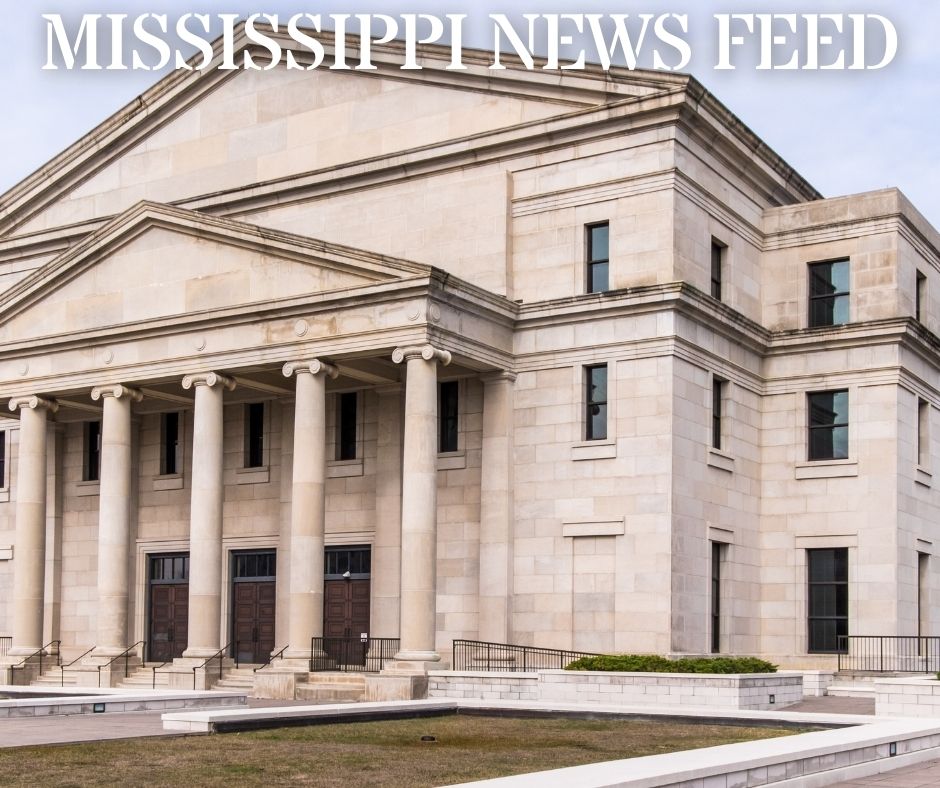Mississippi Today
Senate panel mulls PERS board overhaul, halt of increases
The North Pike School District will have to pay an additional $700,000 in employee pension costs because of an increase being imposed by the board of the state's public employee retirement system, Superintendent Jay Smith recently told the Senate Government Structure Committee.
Smith said he might have to leave vacant teacher posts unfilled to cover the cost.
Officials with governmental entities across the state have voiced similar concerns of possible staff reductions and reductions in services.
Besides being the superintendent of the North Pike School District, Smith, a 33-year career educator, is a member of the Public Employees Retirement System Board. He voted to increase the amount governmental entities contribute to the public pension plan, despite the negative impact the increase might have on his school district
Smith, elected to the board by public education employees, said he and other PERS board members voted for the increase because they take an oath to maintain the financial stability of the program that about 360,000 Mississippians depend on for current or future retirement benefits.
PERS board Chairwoman Kimberly Hanna, chief financial officer and clerk for the city of Tupelo, agreed even though the increase will cost her employer, the city of Tupelo, $2 million a year.
READ MORE: House votes to replace elected PERS board with political appointees
“We have a sworn duty as fiduciaries to make the best decision for the plan, for all members,” Hanna said. “… I have to take that city clerk, CFO hat off when I am at the PERS board meetings and make those difficult decisions sometimes.”
Hanna and other PERS Board members recently were asked to testify before the Senate Government Structure Committee after the House passed legislation to replace the current board of primarily members elected by government employees and retirees with a board of mostly political appointments.
The House legislation also blocks the PERS board from enacting the increase in the amount governmental entities – the state, local governments, school districts and universities and community colleges — pay into the system.
The PERS board has issued a statement opposing the House bill. Senate Government Structure Chair Chris Johnson, R-Hattiesburg, said he has not decided how to handle the House bill in his committee, but said he wanted to hear from PERS board members before making a decision.
Under the current 10-member makeup of the Board, all but two are elected by those in PERS – current employees or retirees. Under the House proposal, all but two members of an 11-member board would be political appointees.
PERS board members told senators during the recent meeting that it is important that the members of PERS have input in who sits on the board that controls many of the issues surrounding their pension.
“The thing that concerns me, not as a board member, but as a taxpaying PERS retiree, is not having direct input on who sits on that board,” said veteran board member Randy McCoy of Tupelo, who served the Tupelo and Clinton school districts as superintendent as well as multiple other posts in education. “If I don't get to vote for the representative, that is what concerns me.”
Some legislators have complained in the past that the board consists primarily of people elected by PERS members and did not include people who represent governmental entities and the impact that the board's action could have on the budgets of governmental entities. People who represent government entities might express more concern to the fuller Board in approving large increases in the amount those governmental entities pay into the system.
The current increase approved by the Board is a 5% increase in the paycheck for each employee designated to go toward the retirement system. It will start with a 2% increase in July, followed by another 2% in July 2025 and an additional 1% in July 2026 unless it is blocked by the Legislature as the House bill attempts to do. If and when fully enacted, employers – governmental entities – will pay a total of 23.4% toward the paycheck of their employees for their retirement. Public employees pay 9% of their paycheck toward their retirement.
The increase will cost a cumulative $270 million for all governments in PERS when fully enacted. The largest single share would be the responsibility of the state. And in the past, the state also has paid at least a portion of the cost of retirement for local school districts and community colleges and universities.
Johnson said he is not sure if he is going to take up the House bill or if so how he will amend it. But it is unlikely the Senate will pass the House bill without making major changes.
But he stressed, as did other senators at the meeting, that there would be no effort to reduce benefits for PERS members.
During the meeting, there were references of not dissolving the current board, but instead adding additional members – perhaps members who were selected by the governmental entities.
“I am not sure what we are going to do,” Johnson said. “I wanted to meet with board members to get their perspective. I thought it was a good meeting.”
Johnson said. “We wanted to gather information.”
The board members told senators that they voted to increase the contribution rate for the governmental entities based on recommendations from their paid consultants – primarily actuaries. Board members also pointed out the staff of the Legislature's watchdog Performance, Evaluation Expenditure Review Committee had recommended the PERS Board make the changes that led to the increased contribution rate for governmental entities.
Still, some senators questioned whether, based on the strong returns that the system has garnered on its investments during the past 15 years, the board overreacted.
The system has assets of about $32 billion and debts of about $25 billion.
This article first appeared on Mississippi Today and is republished here under a Creative Commons license.
Mississippi Today
On this day in 1950


MAY 16, 1950

Twenty Black families from South Carolina filed the lawsuit, Briggs v. Elliott, the first direct attack on the validity of the “separate but equal” doctrine in public schools.
The litigation was later combined with the successful Brown v. Board of Education case. The litigation might never have happened if not for the Rev. Joseph A. DeLaine, who accepted the NAACP's call to challenge the school bus transportation practices in Clarendon County, where Black students had to walk up to 8 miles to school.
“I realize that the stand that I take may cost me my job as a school teacher, but we need men,” he wrote.
Property owner Levi Pearson had previously sued, asking that school buses be provided for Black students. After his lawsuit failed on technical grounds, Thurgood Marshall approached DeLaine, saying he needed families for litigation, or the NAACP couldn't go any further.
After gathering the signatures of 107 parents and their children, economic pressure and violence followed. Despite this, 17 adults signed the petition again, and the lawsuit moved forward to trial. Evidence showed that South Carolina spent $221 annually for each white student, but only $45 for each Black student. White children had modern schools with a teacher for every grade. Meanwhile, Black children studied in wooden shacks, reading textbooks discarded by white students.
As a result of their activism, the Pearson family saw boycotts of their timber, and the Briggses were fired from their jobs. So were DeLaine and his wife. They saw their home and church burned to the ground. They were forced to leave the state after a drive-by shooting. In 2003, the families of DeLaine, Levi Pearson and the Briggses received Congressional Gold Medals for their courage.
This article first appeared on Mississippi Today and is republished here under a Creative Commons license.
Did you miss our previous article…
https://www.biloxinewsevents.com/?p=358956
Mississippi Today
PSC axes solar programs in light of EPA funds, advocates file lawsuit
Advocates from some of the state's conservation groups — such as Audubon Delta, Mississippi Sierra Club and Steps Coalition — spoke out Wednesday against a recent decision by the Mississippi Public Service Commission to suspend several solar programs, including “Solar for Schools,” less than two years after the previous commission put them in place.
“This is particularly disappointing because the need for these incentives in the state of Mississippi is significant,” said Jonathan Green, executive director of Steps Coalition. “Energy costs in the South, and in particular the region known as the Black Belt, are higher than those in other parts of the country for a number of reasons. These regions tend to have older energy generation infrastructure, and housing that has not been weatherproofed to modern standards. For many low- to moderate-income residents in the state of Mississippi, energy burden and energy insecurity represent real daily economic challenges.”
The PSC voted 2-1 at its April docket meeting to do away with the programs, reasoning in part that new funds through the Inflation Reduction Act would be available to the state. About 10 days later, the Environmental Protection Agency awarded $62 million to the state, through the Hope Enterprise Corporation, to help low-income Mississippians afford adding solar power to their homes. The funds are part of the Biden Administration's Solar for All program, one of the several recent federal initiatives aimed at reducing greenhouse gas emissions.
The PSC decision ended three programs the previous commission put in place to encourage wider adoption of solar power through the two power companies it regulates, Entergy Mississippi and Mississippi Power: “Solar for Schools,” which allowed school districts to essentially build solar panels for free in exchange for tax credits, as well as incentives for low-income customers and battery storage.
Last Friday, the Sierra Club filed lawsuits in chancery courts in Hinds and Harrison counties against the commission, arguing the PSC broke state law by not providing sufficient reasoning or public notice before making the changes. Advocates also argued that new funding going to Hope Enterprise won't go as far without the PSC's low-income incentives.
The programs were part of a 2022 addition to the state's net metering rule, a system that allows homeowners to generate their own solar power and earn credits for excess energy on their electric bills. Mississippi's version is less beneficial to participants than net metering in most states, though, because it doesn't reimburse users at the full retail cost. Mississippi's net metering program itself is still in tact.
Northern District Commissioner Chris Brown said that, while he supported efforts to expand solar power, he didn't think programs that offer incentives from energy companies were fair to other ratepayers.

“It's the subsidy that we take issue with,” Brown said at the meeting. “It's not the solar, it's not the helping the schools. We just don't think it's good policy to spread that to the rest of the ratepayers.”
Brown and Southern District Commissioner Wayne Carr voted to end the programs, while Central District Commissioner De'Keither Stamps voted against the motion. All three are in their first terms on the PSC. Brown's position is in line with what the power companies as well as Gov. Tate Reeves have argued, which is that programs like net metering forces non-participants to subsidize those who participate.
Robert Wiygul, an attorney for the Mississippi Sierra Club, countered that argument during Wednesday's press conference, saying that net metering actually helps non-participants by adding more power to the grid and reducing the strain on the power companies' other infrastructure. Moreover, he said, the PSC hasn't offered actual numbers showing that non-participants are subsidizing the program.
“Look, if the commission wants to talk about that, we are ready to talk about it,” Wiygul said. “But what we got here is a situation where these two commissioners just decided they were going to do this. We don't even know what that claim is really based on because it hasn't been through the public notice and hasn't been through the public comment process.”
While no schools had officially enrolled in “Solar for Schools,” which went into effect in January of last year, Stamps told Mississippi Today that there were places in his district getting ready to participate in the very programs the PSC voted to suspend.

“My issue was we should have talked to the entities that were going through the process to (understand what they were doing) to participate in the programs before you eliminate the programs,” he said.
Several school districts in the state are already using solar panels thanks to funding from a past settlement with Mississippi Power. Officials there told Mississippi Today that the extra power generated from the panels has freed up spending for other educational needs. During the public comment period for the 2022 net metering update, about a dozen school district superintendents from around the state wrote in to support the initiative. Ninety-five school districts in the state would have been eligible for the program because they receive power from Entergy Mississippi or Mississippi Power.
Former commissioner Brent Bailey, who lost a close reelection bid in November to Stamps, was an advocate for the schools program that the PSC created while he was there. At the April docket meeting, he pleaded with the new commission to reconsider, arguing that the new federal funding won't have the same impact without those programs.
“My ask is to at least give this program a chance, see where it goes, and hear from stakeholders that have participated,” Bailey said. The solar programs, he added, weren't just about expanding renewable energy, but taking advantage of a growing economy around solar power as well: “We can just stand by and watch it go by, or we can participate in this and bring economic development to the state.”
This article first appeared on Mississippi Today and is republished here under a Creative Commons license.
Crooked Letter Sports Podcast
Podcast: In or out (of the NCAA Tournament)?

College baseball's regular season is in its last week, which means baseball bracketology is a popular activity. State needs to finish strong to become a Regional host. Southern Miss probably has already punched its ticket as a 2- or 3-seed. Ole Miss, playing its best baseball presently, needs victories, period. Meanwhile, the State High School softball tournament is this week in Hattiesburg, and the state baseball tournament comes to Trustmark Park in Pearl next week.
Stream all episodes here.
This article first appeared on Mississippi Today and is republished here under a Creative Commons license.
Did you miss our previous article…
https://www.biloxinewsevents.com/?p=358148
-
SuperTalk FM3 days ago
Martin Lawrence making 3 stops in Mississippi on comedy tour
-
Our Mississippi Home2 days ago
Beat the Heat with Mississippi’s Best Waterparks
-
Mississippi News7 days ago
Man arrested for allegedly breaking into home, robbing owner
-
Mississippi Today6 days ago
Lawmakers may have to return to Capitol May 14 to override Gov. Tate Reeves’ potential vetoes
-
SuperTalk FM7 days ago
Couple arrested after husband received unemployment benefits while in prison
-
Mississippi News Video5 days ago
Local dentists offer free dental care in Amory
-
Our Mississippi Home3 days ago
Charlie’s U-Pik: Opening Soon for the Summer Season
-
Mississippi News6 days ago
Bond set for West Point couple accused of killing their child




































